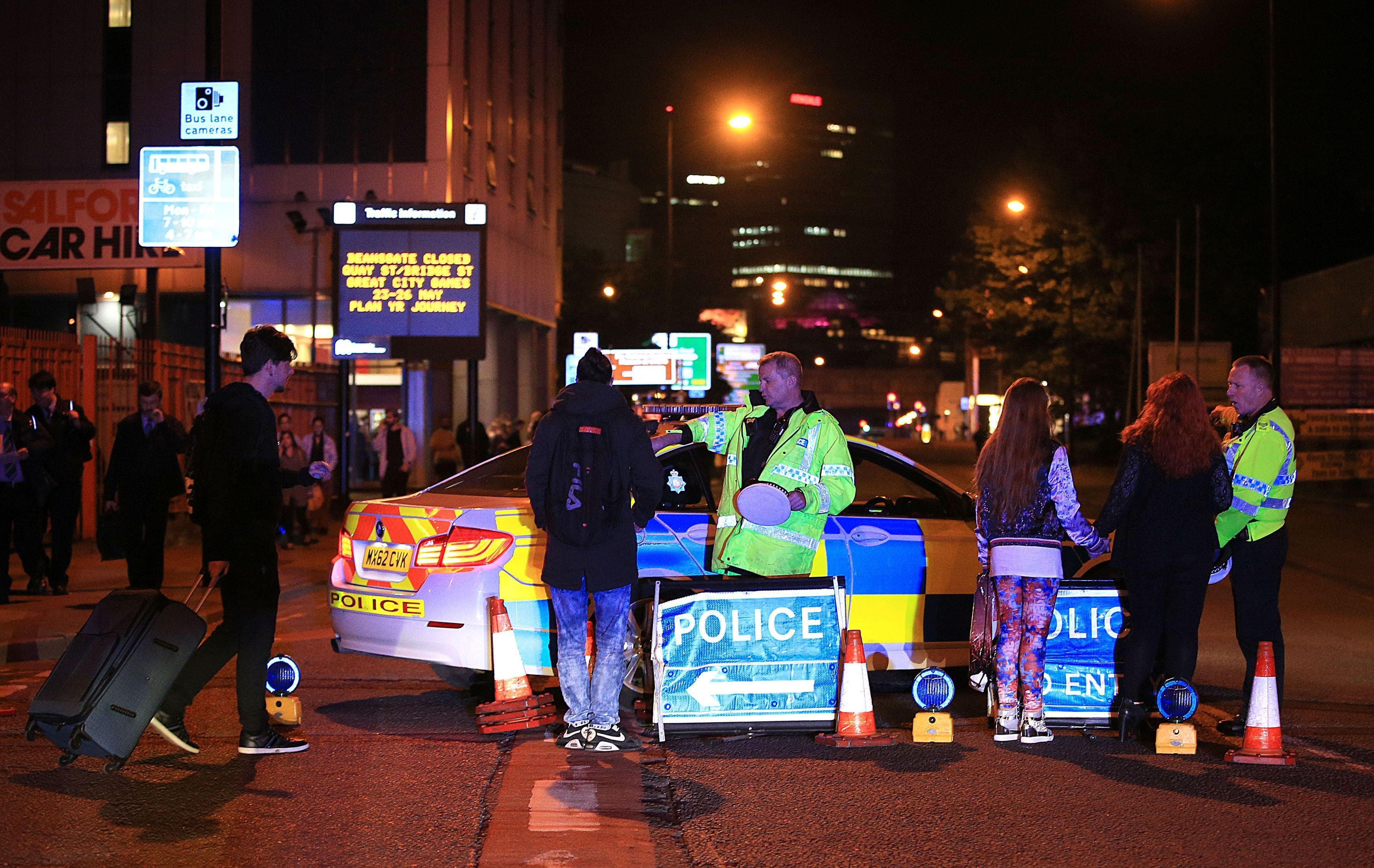Police failed to share vital information after Manchester Arena attack, inquiry told
In the two years leading up to the attack, representatives from British Transport Police were only present at three out of nine local resilience forum meetings held for the area – meetings held to prepare public services for emergencies

Your support helps us to tell the story
From reproductive rights to climate change to Big Tech, The Independent is on the ground when the story is developing. Whether it's investigating the financials of Elon Musk's pro-Trump PAC or producing our latest documentary, 'The A Word', which shines a light on the American women fighting for reproductive rights, we know how important it is to parse out the facts from the messaging.
At such a critical moment in US history, we need reporters on the ground. Your donation allows us to keep sending journalists to speak to both sides of the story.
The Independent is trusted by Americans across the entire political spectrum. And unlike many other quality news outlets, we choose not to lock Americans out of our reporting and analysis with paywalls. We believe quality journalism should be available to everyone, paid for by those who can afford it.
Your support makes all the difference.A British Transport Police (BTP) representative told an inquiry that his organisation failed to share vital information with other emergency services following the Manchester Arena attack on 22 May 2017, which killed 22 people and injured hundreds more.
Assistant Chief Constable Sean O’Callaghan agreed with Paul Greaney, the counsel to the inquiry, that there had been a failure of the Joint Emergency Services Interoperability Principles (Jesip) on the evening of the attack.
Mr Greaney said: “BTP did not, at least at any relevant time, co-locate at command level, they did not communicate effectively, nor did they co-ordinate.
He went on to question Mr O’Callaghan: “In result, they didn’t jointly understand the risk with emergency service partners and they did not share situational awareness?”
Mr O’Callaghan accepted Mr Greaney’s conclusions, and added that a declaration of a major incident was not passed on to other services – neither was an officer’s communication which provided details of the scene.
These pieces of information would have been “vital” to enabling other emergency services to better understand the situation, he said.
When asked if these were significant failures, Mr O’Callaghan said: “Yes, that is correct and a number of changes have been put in place to address those”.
Changes include improvements made to the force’s emergency plans and to the training that officers receive, he said.
In the two years prior to the attack, the inquiry heard that BTP representatives were present at only three out of nine local resilience meetings for the area – meetings that are held to prepare public services for emergencies.
The inquiry also heard that at the three meetings where BTP representatives were present, only those at inspector or chief inspector level attended.
When asked whether that was a reasonable level of engagement, Mr O’Callaghan replied: “It’s certainly not of the standard I have now put in place”, adding that the meetings are now attended by officers of superintendent or detective chief inspector rank.
Mr O’Callaghan also told the inquiry that BTP had invested in explosive search dogs, with seven dogs now based in the Manchester area.
He added that further changes within the force were necessary, following information revealed in the inquiry, and said that he would provide a statement on the additional changes that will be made within BTP.
Earlier this month, Greater Manchester Police (GMP) Deputy Chief Constable Ian Pilling gave evidence at the inquiry and apologised “unreservedly” for failings by the GMP – specifically in notifying other emergency services and in carrying out the basic functions of Jesip.
In March, the inquiry heard that it took paramedics 40 minutes to arrive on scene, and even when they did arrive, only three entered the scene of the attack; fire and rescue services arrived more than two hours later.
The inquiry into the attack is now adjourned for a summer break and will resume on 6 September, at which point it will hear more around the emergency response before evidence about the experiences of those who died is given, Mr Greaney said.
Following this, the inquiry will more on to topics around radicalisation and prevention, some of which will be closed-door sessions.
With additional reporting from PA